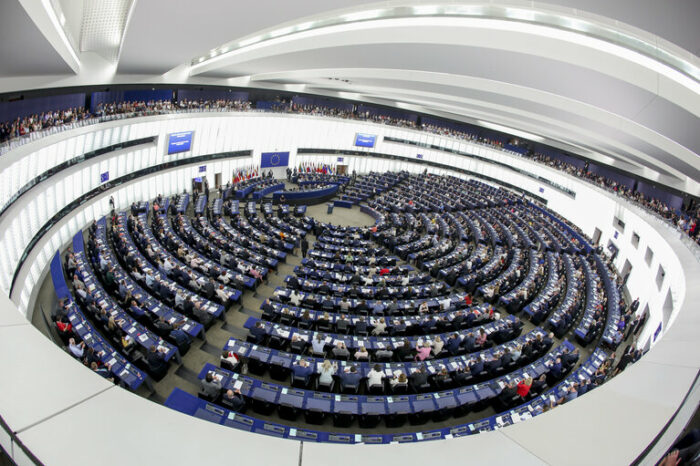The Progressive Post
The Israeli right: authoritarianism and ethnic supremacy

To understand Israel properly, one must get to know the political right, its characteristics, components, and the changes it has undergone in recent years. The right has been in power since 1977, save for the brief terms of Yitzhak Rabin (1974–77, 1992–95) and Ehud Barak (1999-2001) as prime ministers. It has been a partner in and leader of Israeli governments, shaping domestic and foreign policies. The structural and ideological shifts on the Israeli right express to a large extent a sea-change that has swept Israeli society in recent decades, and that is still under way.
Adopting radical neo-liberalism
Israel was founded by workers’ parties and labour organisations from the left. As such, it evolved into a welfare state inclined to socialism and embracing solidarity. The rise of the right in the late 1970s brought about economic change that reflected the trending neo-liberal capitalism around the globe. In Israel, as in other countries, this generated increasing privatisation, eroded the public sector, weakened labour unions, and resulted in growing inequality. Capital was increasingly concentrated in the hands of few wealthy individuals and families, which shape the economy, the media, politics, and, to a growing extent, Israeli society by and large. It is therefore hardly surprising that the criminal indictments against Prime Minister Benjamin Netanyahu stem from his ties with business and media tycoons.
Abandoning liberal ideas
While the Israeli right adopted neo-liberal economic principles, it abandoned the liberal underpinnings of these principles, especially over the past decade. The basic concepts of human and civil rights, a substantive component of the Likud party’s ideology in its early days, was subsumed by ideological and political considerations. The marginalisation of human and civil rights makes it easier to justify occupation, and allows the right to question the legitimacy of Israeli Arab voters and thus make it more difficult for them to join up with the political left to provide an alternative to right-wing rule. It also lays the groundwork for the formation of a right-wing coalition of non-liberal parties, leaving the concepts of human and civil rights as the purview of the political left.
Liberal voices within the Likud party, such as former ministers Benny Begin and Dan Meridor or President Reuven Rivlin, have been cast aside. Right-wing governments labelled human rights organisations as ‘traitors’ and adopted legislation and a public discourse designed to undermine their legitimacy, funding, and freedom within the public arena.
The rule of law is yet another fundamental liberal principle targeted by the right. The new Israeli right finds Israeli and international law, based on a liberal world view, disruptive. The law gets in the way of the Israeli settlement enterprises and the occupation. While Israeli courts have used various tactics to successfully whitewash the settlement enterprise, for example differentiating between so-called legal and illegal settlements and thereby greenlighting the whole settlement enterprise, these rulings do not satisfy the nationalist proponents of a Greater Land of Israel, especially when the court rules in favour of Palestinians whose human rights are violated by the occupation.
The law is also a thorn in the side of the Israeli plutocracy, and it seeks to protect individual rights against the power of the majority. It battles corruption and therefore personally threatens leaders on the right who have run afoul of the law: Netanyahu, two leading ultra-Orthodox politicians – Yaakov Litzman of the United Torah Judaism Party and Shas party chair Aryeh Deri, Likud Members of the Knesset David Bitan and David Amsalem, and others. For all these and other reasons, the Israeli right seeks to weaken and undermine the courts, the police, the state prosecution and the justice system, which serves as basic building blocks of the liberal order.
A non-liberal coalition on the right
The abandonment of liberal values provides the underpinnings of the right-wing coalition that is ruling Israel. Its members are several disparate parties – the Likud, the settlers’ parties representing nationalist religious ideas, the non-Zionist ultra-Orthodox parties, and the Yisrael Beitenu party representing many Israelis who hail from the former Soviet Union. Although fundamentally different on issues of religion and state and divided over economic principles, they share a basic rejection of liberal values.
The ultra-Orthodox parties adhere to religious law. They do not identify with the ideas of human and civil rights nor with the basic principle of sovereignty of the people. They are ruled by rabbinical authority. The parties that represent nationalist religious ideas place the goal of a Greater Israel and settlement expansion above all else. Both goals violate Palestinian rights in the territories, create a hierarchy between Jews and Palestinians and contradict the principle of Palestinian self-determination. Yisrael Beitenu, led by Avigdor Liberman, is a secular party in essence, but it is not liberal. Unlike the ultra-Orthodox and religious parties, it promotes the authority of the state as superior to minority and human rights. The ideological thread running through all these parties is a basic concept of Jewish ethnic supremacy (religious, cultural, or historic) and rejection of republican citizenship.
To ensure the continued support of the ultra-Orthodox parties, Likud gives in to their demands on issues of religion and state and funding for their communities. To ensure the support of Zionist religious voters, the Likud party advances the Greater Israel idea.
Netanyahu, squeezed between diplomatic and political pressures, tries to manoeuvre through these minefields. He enables creeping annexation without generating international anger or bearing responsibility for the violence it breeds or the economic burden it entails. This explains the so-called regulation law that he promoted, the annexation declarations he issued during the recent election campaigns but was saved from having to implement by the normalisation deals with Gulf States, as well as the threats to evacuate the Palestinian village Khan al-Ahmar, which he keeps delaying.
Bibism
Today’s political right cannot be understood without relating to the place and role of Benjamin Netanyahu (nicknamed Bibi) as its leader. His supporters regard him as a supreme leader and reject any challenge to his leadership as illegitimate. His personal fate is intrinsically intertwined with that of his party and of the right-wing government he heads. Anyone who tries to run against him in party primaries is considered a traitor. Even the idea of holding leadership primaries within the Likud party is sometimes perceived as an act of treason – for example when Likud leading member Gideon Sa’ar insisted on running against Netanyahu in 2019 (and was roundly defeated).
In January 2020, Netanyahu was indicted on charges of bribery, fraud, and breach of trust. The Prime Minister has been accused essentially of abusing his power and serving his own personal interests at the expense of the public good. However, even the indictments were not sufficient reason for the Likud party to replace him or for its allied parties to withdraw their support. This clearly illustrates the choice of the Israeli right: support for its leader rather than for the rule of law and state institutions.
The Israeli right as part of the global illiberal right
Along with its unique characteristics, the Israeli right adheres to the conservative, non-liberal trends in the titanic global struggle against the values of liberal democracy. Preferring authoritarianism and adulation of a leader over ideology and values, dismissing science and the truth, placing nationalism and ethnicity over liberal and republican values, weakening the judicial and legislative arms of government and strengthening the executive branch – all are trends easily identified elsewhere in the world, from Brazil through the US and all the way to Hungary and Poland.
The State of Israel has long prided itself on being a democracy, even, often, as the ‘only (real) democracy in the middle east’, seeking power and recognition as a dividend. Israel worked hard to be accepted into the club of liberal, developed, free democracies. The trends and characteristics of the Israeli right point to the danger and plausibility of a decline of Israeli democracy.
Democracies can fall – and the Israeli right pushes into this direction.
Related articles:
Israeli Progressives should reach out more to their international partners, by Nimrod Goren.
Progressive politics in the Middle East: Israel and the region, by Ksenia Svetlova.




